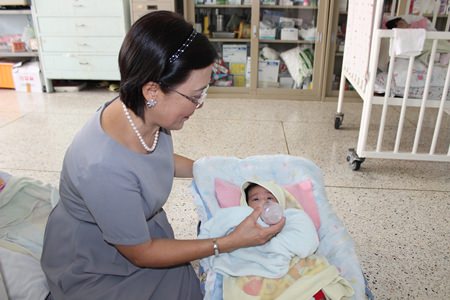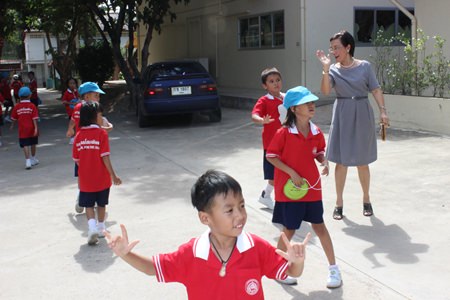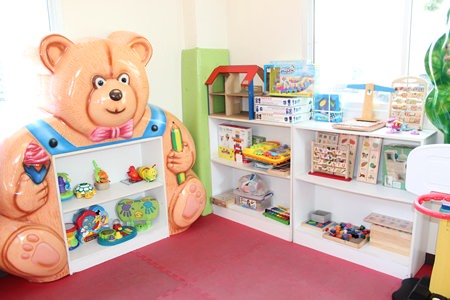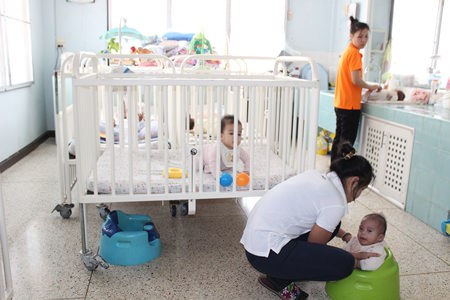Radchada “Toy” Chomjinda chats with Pattaya Mail
As head of the Human Help Network Thailand and the Child Protection and Development Center, Radchada Chomjinda has become a central figure in Pattaya’s network of social-welfare organizations. She sat down recently with the Pattaya Mail to outline HHN’s mission and projects.
PM: What is the Human Help Network Thailand?
Radchada: HNN works with children who have been assaulted and abused, particularly, girls who have suffered physically and sexually. Human Help Network was founded in 1990 to help unfortunate children worldwide and has been fighting for children for more than 20 years. In Thailand, we founded the Child Protection and Development Center in Pattaya as an important channel to fight against childhood violence and human trafficking.
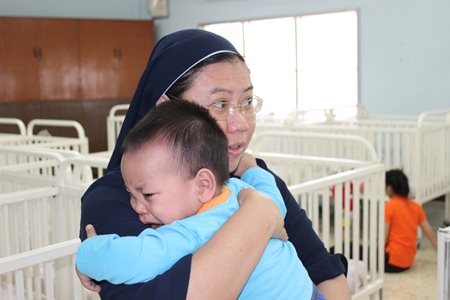 A nanny cares for a young child as if it were her own.
A nanny cares for a young child as if it were her own.
PM: Do you care for the females and children yourself?
Radchada: Most of those under our care are pregnant females who cannot raise their children. Our foundation takes the children in, but some of the females are students within the foundation. Therefore, we take responsibility for their pregnancies until delivery. Some have relatives who can help with raising the child but some don’t even have one cousin and cannot even care for themselves or their child. We accept them under our care.
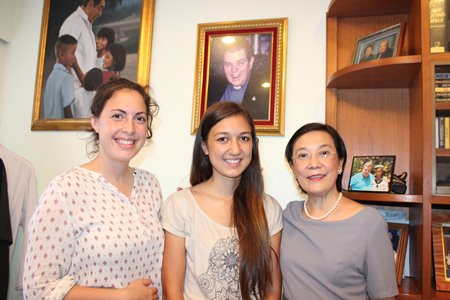 (L to R) Volunteers Alena Hayer and Katharina Hoesler tell Radchada Chomjinda how happy they are to help the foundation.
(L to R) Volunteers Alena Hayer and Katharina Hoesler tell Radchada Chomjinda how happy they are to help the foundation.
PM: What is the most common abuse suffered by children that the center encounters?
Radchada: Children today face problems from the age of four or five. Some continuously until they reach puberty and those who commit these acts against children are their close relatives or even their own biological fathers. All these problems arise because, these days, vices are everywhere such as drugs, alcohol and many more, causing individuals to lose their wits and commit immoral acts. Hence, children suffer from emotional and physical issues. The problems are just terrible.
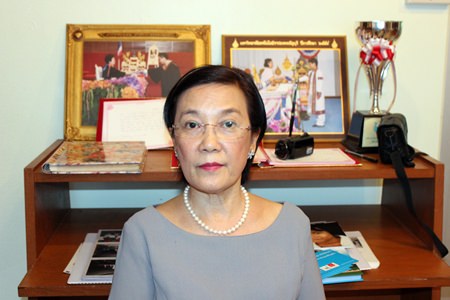 Radchada Chomjinda has become a central figure in Pattaya’s network of social-welfare organizations.
Radchada Chomjinda has become a central figure in Pattaya’s network of social-welfare organizations.
PM: What are the measures taken by the foundation to help these children?
Radchada: At our center, apart from counselors, we have nurses and teachers to care for these children like their own. At Ban Auay-aree (the Child Protection and Development Center), children are cared for like family because in each house, children live like brothers and sisters with nannies. When a new child arrives at the home, the resident children will shower the new child with warmth. The attending teacher is like a mother to the child providing the child with love and understanding because these are what the children need most. When the child enters the emotional-counseling phase, we send all students to school, where they make friends and will enjoy better things in life.
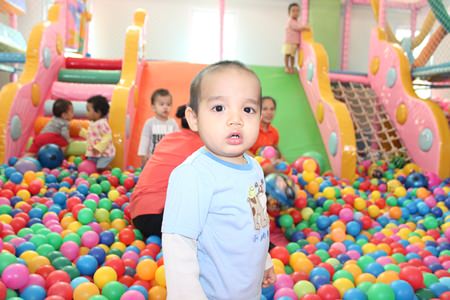 “Who are you?” A youngster is only distracted from playing with the colorful balls for just an instant.
“Who are you?” A youngster is only distracted from playing with the colorful balls for just an instant.
PM: How does the foundation educate children?
Radchada: We teach all about life, morals, and ethics. We encourage children to live naturally because one day, these children will return to their families when they graduate and live in society. Therefore, we try to get the children out of the area littered with drugs, gambling or vices. We have to educate them because education is the key to differentiate between right and wrong. Moreover, for these children to live the society and live a safe life, we have to teach them of moral values, ethics, and survival skills while the society should understand and give love to these children as they will be able to live correctly not depending on the various vices and can depend on themselves with the knowledge.
PM: How many children and women are under your care at the moment?
Radchada: Currently, at Ban Auay-aree we care for 65 children, all of whom are at school and we even have foreign children, who were left by their parents. These children face even more issues than the local children because they can barely communicate in Thai and we have to send them to English-language schools since they need the language for future. They will one day return to their country because they are foreigners, not Thais.
PM: Where does the foundation receive support?
Radchada: Most of the support is in the form of donations but the parent foundation, which is in Germany, also helps us with almost all of our expenses. Therefore, 100 percent of the donations reach the children because we do not need to deduct employees’ salaries as those are handled by the main office in Germany.
PM: What are other projects to help children and females?
Radchada: Our future projects include construction of a home for children, which will be the first for pregnant women who are not ready to be a mother. When these women come here, we will provide help from pregnancy through delivery until they can care for the child themselves and will be released from the foundation. But for mothers that cannot care for their child, they will be advised to give their child to the foundation as we will search for adoptive parents and even look for jobs or send them for further education.
PM: What would you like to say to the society, which is surrounded by dangers and abuse to children and females everyday?
Radchada: I believe that solving problems in society is absolutely complicated. We have to start within the family since Thai families in the past decade have rushed in making families and are materialistic. Parents work all day and have no time for their children. Children should receive warmth to have a better life. I believe that we have to start from within the family before we work on societies and families are their solace.
